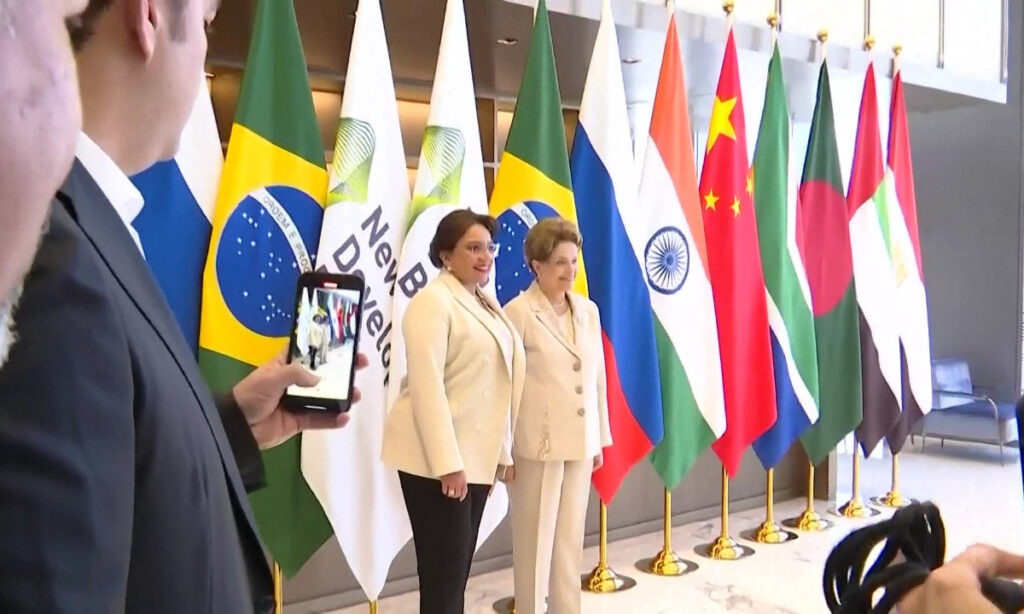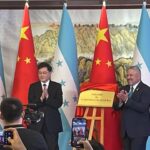President of the Republic of Honduras Iris Xiomara Castro Sarmiento formally requested the country’s admission to the BRICS-led New Development Bank (NDB) after she visited the headquarters of the bank in Shanghai on Saturday. She also visited a Huawei research center on the same day, highlighting pragmatic cooperation during her trip to China.
In addition to promoting political consensus, pragmatic cooperation in the economic and trade fields can also help create a solid foundation for China-Honduras relations so as to ensure that bilateral relations can go further, experts noted.
“We believe that we can have all the possibilities here to find mechanisms that allow us to develop our economy, as well as find permanent allies that allow us to give a different quality of life to our peoples,” Castro said at the NDB, a multilateral development bank established by BRICS countries, according to an EFE report.
During a meeting with Dilma Rousseff, the president of the NDB, Castro formally requested to join the bank, Castro’s office said in a tweet. It also added that a technical commission from the Honduran government will start the process in the next few days.
Also on Saturday, Castro visited a Huawei Shanghai Research Center. She toured an exhibition hall that displays cutting-edge digital technologies and experienced firsthand the application of new technology in real-world scenarios, according to a statement Huawei sent to the Global Times on Saturday.
According to the statement, the president held in-depth discussions with Dr Liang Hua, Huawei’s chairman of board, on areas where they can collaborate, such as information and communications technology (ICT), inclusive connectivity, digital transformation of industries like healthcare and education, green development, as well as talent cultivation.
“[Huawei] is very important for the president to seek technological cooperation for Honduras,” Honduran foreign minister Eduardo Enrique Reina told thepaper.cn, a Shanghai-based media outlet, noting that they hold the expectation of deepening bilateral relations through the visit as China has a record of very strong participation in the international organization and in the world economy.
The president’s visits to both the NDB and Huawei were an indication of the Honduran government’s high interests and eagerness to develop economic and trade relations with China, said Sun Yanfeng, director of Latin American research at the China Institutes of Contemporary International Relations.
They want more support from multilateral financial institutions like the NDB for financing, especially in areas such as infrastructure, and also hope to promote their country’s development through scientific and technological cooperation, Sun told the Global Times on Saturday.
Like many Latin American countries, Honduras also faces development challenges. The pursuit of technological cooperation will be crucial for Honduras to improve its industrial structure to find new growth momentum for its economy and people, Sun noted.
Castro is currently on a six-day official visit to China, which will run until June 14, the Xinhua News Agency reported. The first state visit to China by a Honduran president came just less than three months after the two countries established diplomatic ties following Honduras’ decision to sever the so-called “diplomatic relations” with China’s Taiwan region and came soon after the opening of China’s Embassy in Honduras.




